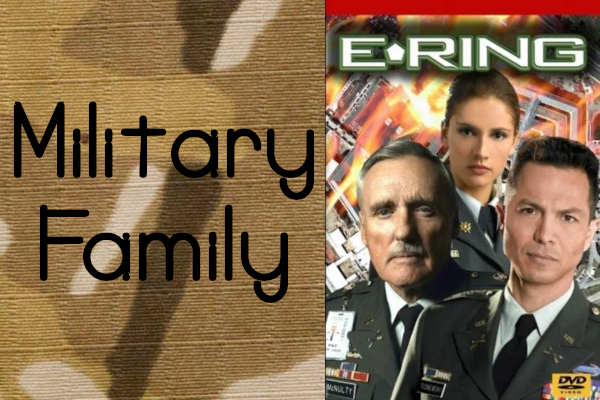Military Family

My mind wandered a bit while watching the 2005 military TV series E-Ring episodes 3-6. I thought of a black person who tries to make everything about race when discussing two people not getting along. I don't remember why. This made me wonder. Who were my primary battle buddies during each duty station from basic training to end of service? Who were my closest military family members?
Initial Entry Training
Basic Combat Training (BCT)
Between my bus ride from the Army recruiting center all the way to Basic Combat Training (BCT), I found a new friend. He was married, funny, real down to earth, and white. During basic training, we were besties. I'd talk with him when I had issues from back home and vice versa. I should've made a better effort to keep in contact with him. But even if I never speak with him again, he helped me get through one of the greatest challenges in my life. Wherever you are today, I hope you're doing great, and thank you.
Advanced Individual Training (AIT)
I eventually graduated to Advanced Individual Training (AIT), where new soldiers learn their actual job or military occupational specialty (MOS). On the ride there, I made another friend. He was also married, grounded (but less silly), and Caucasian. We'd explore off-base together, and hate life during classes together. He wasn't a gym rat, though. Otherwise, we were oftentimes together, learning from each other, or just riffing. As AIT gives more freedom than BCT, he helped me mature faster. Thank you.
In the "Real Army"
As you'd expect, the new experiences only became more frequent when I arrived at my first unit duty station, an Explosive Ordnance Disposal (EOD) company at Fort Bragg, North Carolina. This was before the 2009 Hurt Locker movie. I didn't know “disposing of bombs” was a thing until I read my orders. As you might guess, most people in that EOD company, and that field as a whole (at least during my time in service)... lacked melanin. As you may not have guessed, many tried to make me feel at home. Some of them had me over to meet their family, and I kept in contact with a few throughout the years. Everyone showed appreciation for the hard work I put in to making sure their communications equipment were up to standards. It felt like a family.
What Does it All Mean?
You may be reading this trying to figure out my "point" to all this. Am I saying that i didn't care about race in these situations? No. Am I saying that whites are quicker to help blacks than other blacks? Naw, there's not enough context given to begin to cover that case. Racism, sexism, homophobia, etc. are all different types of discrimination. My belief: ignorant, arrogant, and insecure people subscribe to those mindsets to protect themselves from themselves. Instead of reflecting on how they might be part of the pattern they're experiencing, they deflect all accountability with a "it's not me, it's all them" mindset.
That's not a way to live: expanding negativity and hate. We must be brave enough to acknowledge that generalizations exist for a reason, but do not apply to everyone the same, or at all. We must be willing to learn from different cultures and countries, and realize that we should all be in this together. We all have the issues, goals, fears, and wishes. Unfortunately, we still have many people dedicated to elitism, destroying lives for that cause, and not only ignoring but refusing to right the historic wrongs of others (which is passive support).
"Until I'm free, you ain't free." - Fannie Lou Hamer
Tags: military, black-community



